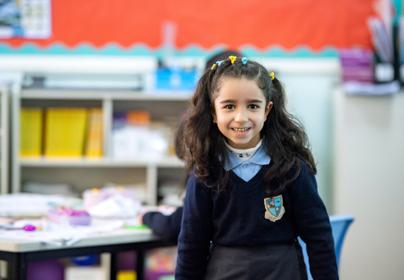Drama
This term, Year 7 have used drama lessons in order to build up a basic understanding of drama concepts and key skills for working on stage, such as: working as an ensemble, working in a physical environment, and building character. Year 8 have been reading Arthur Miller's 'A View from the Bridge', and have been isolating key scenes in order to analyse character development through physical activities. Finally, Year 9 have been reading Benjamin Zephaniah's 'FACE', and developing an understanding of staging ideas, such as cross-cutting, juxtaposition, and multi-layered characters. I have been impressed by the strong levels of engagement from all students during these modules, and the students themselves have enjoyed the opportunity to learn key skills through physical and spoken means.



ICT
In line with Britannica’s goal of empowering students through the use of technology delivery, ICT finds itself at the heart of the push toward project based learning. One can think of ICT as the hub at the centre of many nodes, whereby the nodes represent the various academic areas who are all collaborating to create domain changing artefacts.
For example, ICT has collaborated with Geography and History to create projects that students will complete in both areas, the final presentation being displayed in a purpose built web site created and populated in ICT by the students.
This year we will again publish a Science Fair Competition web portal, building on the success of last year and also a humanities web site titled, ‘The Culture Club’ which will include Gothic literature (Frankenstein, The Canterville Ghost, The Woman in Black), Poems, Creative Writing in Media, Dystopian imaginings based of Animal Farm and multi-modal content on the Suffragette Movement.
These sites are mainly for Years 7, 8 and 9 in subject areas English, Media and Drama, ICT, History, Geography and Science. Academic research consistently highlights how online publishing motivates learners to do their very best;
Helps to build strong writing, editing, and revision skills;
Gives other learners the opportunity to acquire experience;
Helps to build learners’ confidence and self-esteem;
Encourages group collaboration and offers peer support;
It encourages a free exchange of ideas and gives learners recognition for exceptional work.
The Students final work will be seen by a wider audience including friends, family and colleagues around the world. The proof will be in the publishing, we hope you enjoy the hard work and dedication that students and staff will put into these unique cross curricular projects.

More across Secondary












